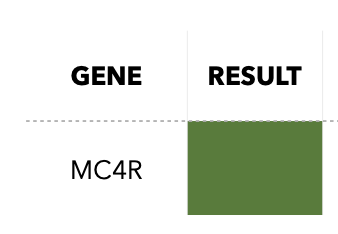🐶 Labradors: what can they teach us about appetite? #92
Hello lovely people,
Today, we discuss an important topic: hunger and appetite. You will also learn a fun fact about Labradors and why they might be the most trainable dogs.
To discuss appetite, we must understand the most crucial pathway that controls it: “the leptin-melanocortin pathway.”
Leptin - Melanocortin pathway
Leptin is a hormone produced in fat cells, the jiggly part of your body. The amount of leptin in the blood is directly proportional to the body's fat tissue. When you eat, and your fat stores increase, this triggers the release of leptin into the bloodstream.
As it circulates through the bloodstream, it attaches to leptin receptors, particularly in the hypothalamus - the brain to signal that you have eaten enough and you are full. Guess who has a genetic mutation on the leptin receptor gene? Me 🙂
This is why I can never go without food for very long periods. Fasting is not my friend. Variations in the receptor have been associated with metabolic disease, so I need to manage my food intake well and keep my nutrition on point.
Back to the pathway.
As leptin binds to its receptors in the brain, it releases POMC neurons called melanocortin peptides, which go on to signal to another population of neurons that express MC4R. When MC4R receptors are activated via the release of leptin, we stop eating - our brain tells us we are full.
🐶 Labradors - about a quarter of them have the POMC gene either with variations or deleted. There is an evolutionary reason for it. Labradors descend from the now-extinct St John’s Water Dog, which was bread for fishing on very cold Canadian lakes in the 17th-18th century. As you can imagine, when selecting a dog to go fishing with you in frozen waters, you’d choose one with a very good amount of fat to keep it warm. It turns out that they just had a variation in their POMC gene that made them hungrier, so they ate more and, as a result, had more fat storage.
These days, our Labradors carry the same, making them very prone to obesity. This also makes Labradors extremely food-motivated and, as a result, very trainable. This is why we use them for visually impaired people. So next time your Labrador looks at you with puppy eyes, you think, “He loves me,”… he is just hungry.
Similarly to Labradors, certain variations alongside this pathway can make people more prone to eating more. For example, variations on the MC4R can lead to a 30-70% loss of receptor function. People with these variations seem to prefer high-fat foods, which, of course, eventually leads to excess fat storage.
I don’t have a variation on this one:
Appetite is one of the main drivers of life. Without it, we would die. From an evolutionary perspective, an increased appetite has saved our lives in times of famine. It has driven us to look for food, store fat, and survive to procreate. Appetite in this modern day is leading us to disease. Understanding its complexity and working with it will help us figure out how to navigate this environment better and understand that obesity might not be an individual’s problem.
Who is to blame for obesity?
The more I learn and dig deeper into genetics, the more I realise there is a triangle between genetics, environment, and behaviour. This triangle seems to determine many chronic health issues, including PCOS. We might have a genetic makeup that leads to an increased appetite in a food-rich environment, leading to behaviours that hurt us. Blaming purely on willpower is wrong. These forces are big, and we need to understand them well to create strategies to deal with this complexity.
This is my aim with the PCOS program: to understand this triangle and define strategies to make the most out of your genetic makeup, environment and behaviour for a symptom-free PCOS and healthy lifestyle. Join me here.
I hope you enjoyed this deep dive into appetite and Labradors.
See you next Sunday,
Francesca
1 Sources
Su, S., Zhang, C., Zhang, F., Li, H., Yang, X., & Tang, X. (2016). The association between leptin receptor gene polymorphisms and type 2 diabetes mellitus: A systematic review and meta-analysis. Diabetes Research and Clinical Practice, 121, 49–58. https://doi.org/10.1016/j.diabres.2016.08.008
Yeo, G. (2020). Gene eating: The science of obesity and the truth about dieting. Pegasus Books.



